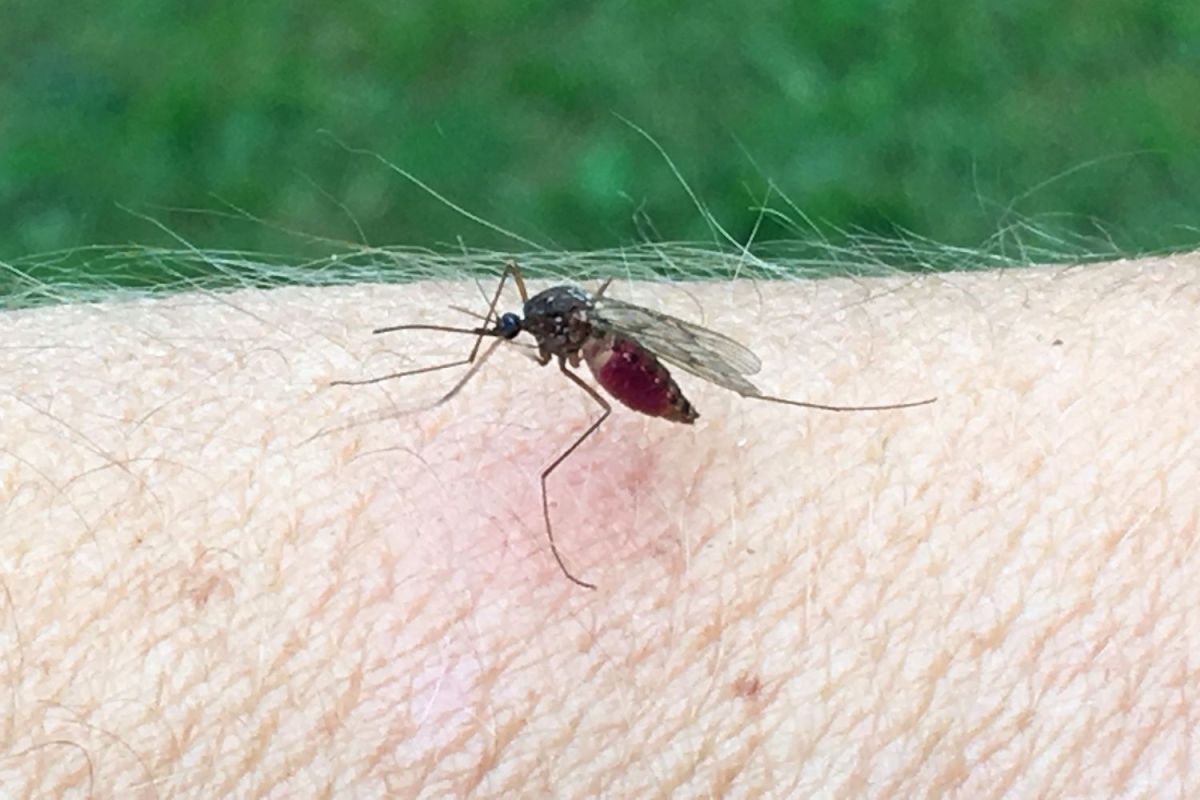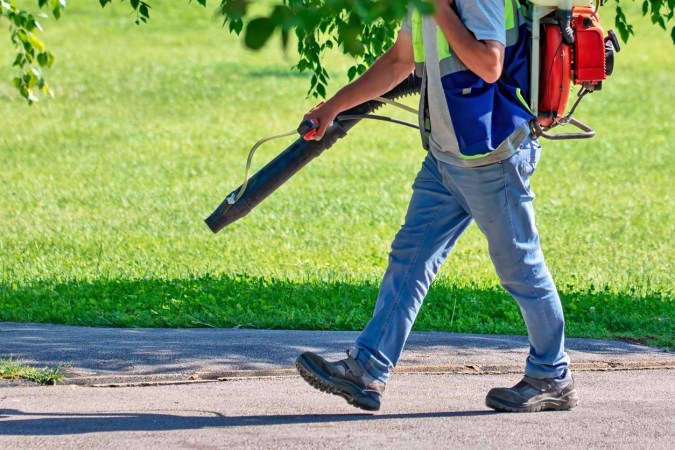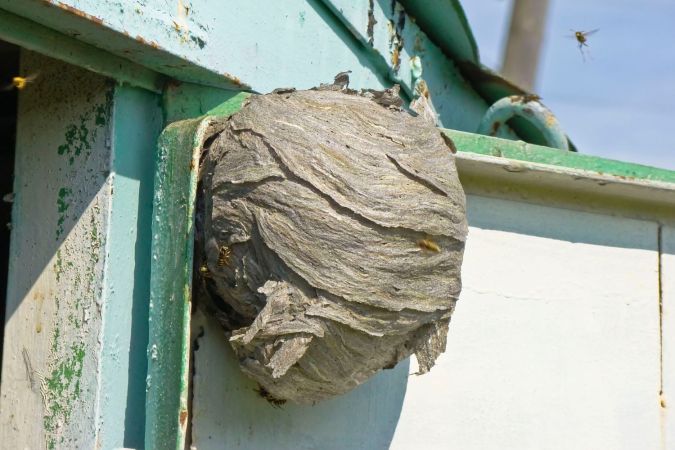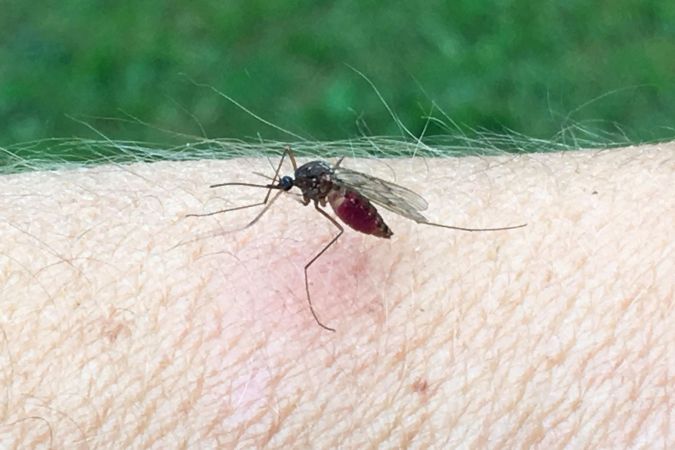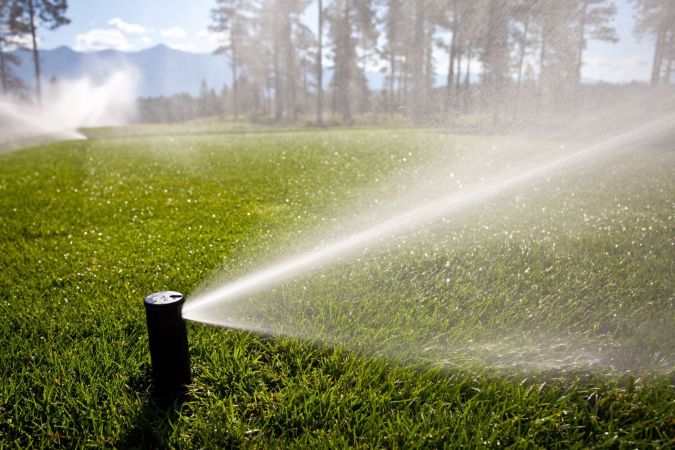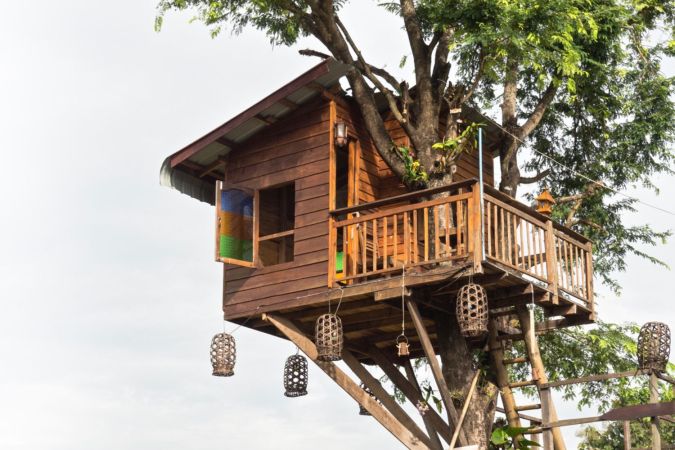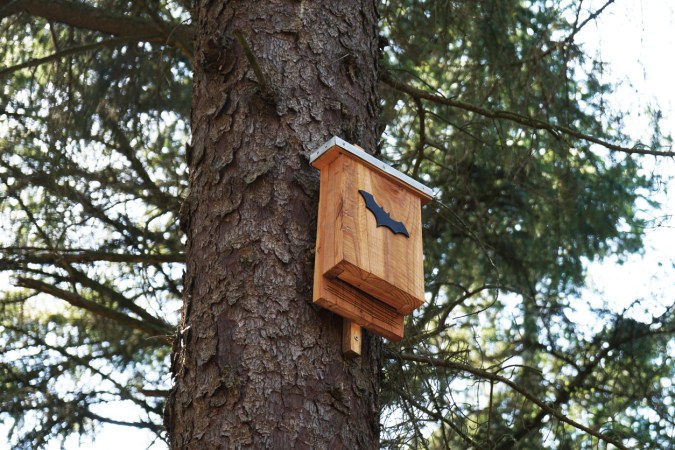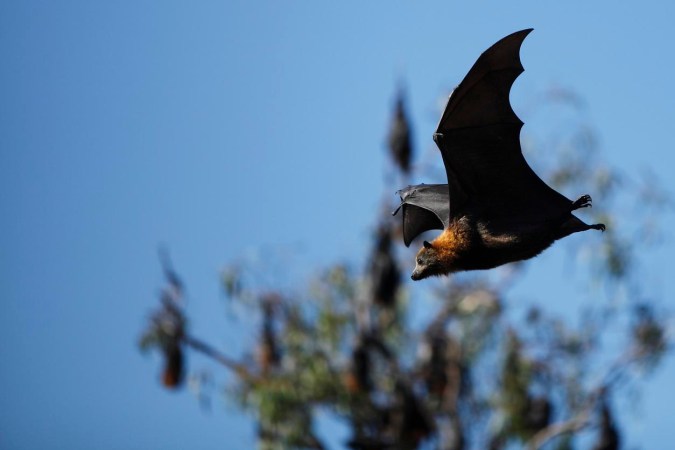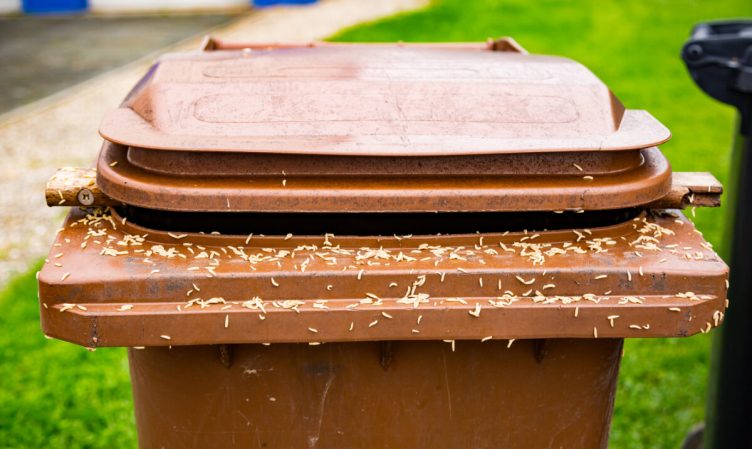We may earn revenue from the products available on this page and participate in affiliate programs. Learn More ›
Highlights
- The average price range for residential mosquito control treatments is between $350 and $500 per season.
- The exact cost will depend on a variety of factors, including the size of the yard, the extent of the infestation, the type of treatment used, and the treatment frequency.
- A homeowner might want to consider mosquito control services if they live in an area with high humidity, if their yard has a lot of shade or standing water, or if they notice they’re getting more mosquito bites than usual.
- DIY methods can help keep mosquitoes at bay in some cases, but for more serious infestations it’s recommended to hire a professional to spray for mosquitoes.
Spending time outdoors in beautiful weather is at the top of many people’s lists of favorite things to do. When the weather is warm and humid, however, a lovely dinner on the patio or game of badminton—or even just mowing the lawn—can result in itchy, swollen welts after mosquitoes feast. For some people, these nuisance bites can become large, swollen, and hot to the touch, signaling infection, and with a recent uptick in the number of serious mosquito-borne viruses, it makes sense to take action to prevent mosquitoes from lingering in the yard.
Some simple mosquito-prevention methods include keeping the grass and shrubbery trimmed to an appropriate length, preventing water from puddling or pooling in containers or dips in the yard, and disposing of trash immediately and properly. Even with careful maintenance and the help of the best mosquito traps, however, mosquitoes will flourish in a wet season or travel to the yard after hatching in a neighbor’s standing water. Fortunately, there are mosquito treatments that can reduce the number of mosquitoes and work on interrupting the cycle of reproduction to make time spent outside safer and more pleasant for the home’s residents. With mosquito treatment cost ranging between $350 and $500, according to Angi and HomeAdvisor, it’s a reasonable option to consider as a replacement for a pile of citronella candles and endless cans of bug repellent.
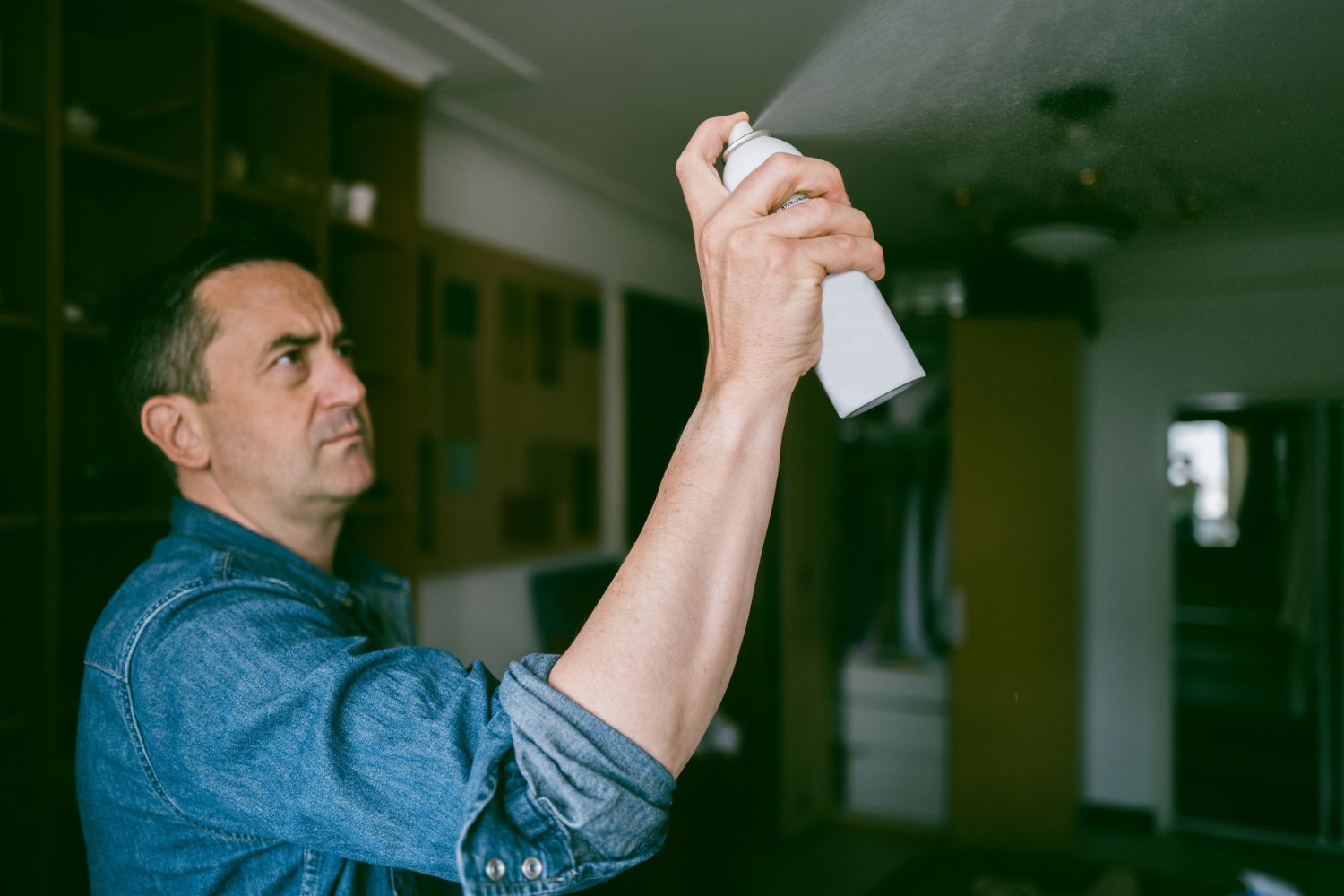
Factors in Calculating Mosquito Control Cost
Mosquito control isn’t usually just a quick once-and-done spritz on the lawn using one of the best mosquito yard sprays—especially in areas that are warm and wet for a good portion of the year. Professionals often treat in a 3-week cycle over the course of the months that mosquitoes are in season in the area. There are actually quite a few components that can affect the cost of mosquito treatment, and understanding what they are can help the budgeting process and make the evaluation of an estimate easier.
Evaluation and Inspection
Every yard is different: The topography, soil composition, water table, and percentage of the yard that is covered with greenery will all affect the type of treatment and the total cost, as will the number of mosquitoes, eggs, and larvae already present. Many of the best mosquito control services like Orkin will offer a free evaluation of the yard, inspection of the infestation, and printed treatment and cost options. Other companies may charge for the evaluation and inspection but will waive the cost if the customer chooses to hire their company for the treatment.
Yard Size
More ground to cover equals more material and more labor, so the larger the yard, the higher the cost for mosquito control. Yards of less than ¼ acre may cost as little as $100 per treatment, while a 1-acre yard may cost as much as $400 per treatment.
Infestation Size
While it may seem like mosquitoes are everywhere, they actually need a certain amount of moisture in which to lay eggs and mature, so the overall infestation size will depend on how many breeding sites are present in the yard. A small colony of mosquitoes with a single breeding site is a pretty quick and inexpensive fix, and it may only cost $75 to $150 to treat. On the other hand, a large infestation spread across multiple breeding grounds can cost upwards of $500 for just one treatment.
Infestation Location
It’s horrifying to think about, but mosquitoes do not limit their breeding grounds to the outdoors; there are plenty of places inside a home where there’s enough water to breed. Bathrooms, kitchens, and drains all harbor wet spaces that are enough to breed a small colony. Balconies, garages, and basements are also prime locations, and while bedrooms aren’t a prime space, a leaky window or roof can create a good breeding site as well. Treating bathrooms, bedrooms, kitchens, and balconies will come in under $150, while garages, basements, yards, and drains tend to cost more to treat because of their size, additional water sources, or difficulty of access.
Treatment Type
There are quite a few methods of controlling mosquitoes, all of which depend on the part of the season, location, and type of infestation. Larvicide briquettes, which kill mosquitoes before they reach maturity, are the least expensive option, while fumigation, microencapsulation, barrier sprays, and adult pesticide spray all cost about the same, averaging between $115 and $160 per treatment. Mosquito dust is the most expensive option, costing up to $250 per treatment.
Treatment Frequency
The number of treatments necessary to control the mosquito infestation will depend on several components. The mosquito life cycle is about 3 weeks, so the first treatment (unless larvicide briquettes are used) will kill the adult population, but it won’t affect the larvae or eggs that are already growing and a second treatment may be necessary. Also, yards are not enclosed spaces: Mosquitoes don’t respect property lines, so it’s likely that new breeding sites will form after the initial treatment. The average costs for mosquito control based on treatment frequency are shown in the following table.
| Treatment Frequency | Cost |
| One-time visit | $90 to $200 per visit |
| Seasonal contract | $350 to $600 per year |
| Monthly contract | $450 to $1,000 per year |
| Quarterly contract | $175 to $325 per year |
| Annual contract | $75 to $150 per year |
Mosquito control companies usually spray in 3-week cycles. Customers can choose an annual contract for an average of $115 where the company will perform a well-timed single spray before the mosquitoes take hold in the yard. A quarterly contract averages $250 per year, while a seasonal contract (spraying every 3 weeks during the months mosquitoes are active in the area) costs an average of $475 per year. Finally, a monthly contract, with year-round spraying approximately once per month, will cost an average of $725 per year. The more frequently the yard is sprayed, the higher the overall cost of mosquito control, but seasonal and monthly contracts can save a lot of money per visit. For a low cost of around $145, a homeowner can usually request a one-time treatment prior to an event or party to reduce the number of mosquitoes specifically for the event.
Treatment Brand
Some of the best pest control companies, such as Terminix, offer mosquito control among their list of services. Some recognizable lawn care companies such as TruGreen also offer mosquito control services. There are also hundreds of smaller local companies that offer similar services. Prices can vary widely based on the type and frequency of mosquito repellent service offered, but price isn’t the only consideration: Smaller local companies may offer better pricing than national companies, but the large nationals are tightly regulated to make sure the treatments are what they say they are and that the chemicals are being handled responsibly. Nonetheless, there’s something to be said for having the same local worker come spray the yard every time, and some people may be more comfortable hiring small and local businesses. Either way, it’s a good idea for a customer to compare mosquito service cost between several brands before making a decision.
Climate
The climate in the geographic area where a home is located will have direct implications for the treatment plan and budget. Mosquitoes need warmth and moisture, so areas that feature those conditions for longer periods have a lengthier mosquito season and will require more treatments. Areas that are warm but generally arid and areas that are cool for a longer part of the year will require fewer treatments overall.
Types of Mosquito Control Services
Each mosquito infestation will require a different treatment based on the size of the infestation and the types of breeding sites that are discovered during the inspection. The types of treatments have different costs and may be applied in combinations designed to address the stages of infestation and the types of breeding sites. These costs are detailed below.
| Type of Service | Average Cost Per Treatment |
| Larvicide briquettes | $100 |
| Fumigation | $115 |
| Synthetic and microencapsulated | $115 |
| Mosquito barrier spray | $150 |
| Adulticide spray | $160 |
| Mosquito dust | $200 |
Larvicide Briquettes
These small pucks or bricks of larvicide are placed on standing water that can’t be effectively removed. The larvicide dissolves into the water, and as eggs hatch, the larvae are killed fairly immediately. These briquettes are an effective form of treatment because they kill the mosquito larvae before they have a chance to mature and lay additional eggs, and they’re also very cost-effective, averaging about $100 per visit. For the first treatments, larvicide briquettes may be combined with another treatment that kills adult mosquitoes.
Fumigation
For indoor mosquito infestations, which are most often found in laundry rooms, bathrooms, or kitchens, fumigation is an effective option. Affected rooms will be sealed and flooded with a spray vapor that will kill adult mosquitoes immediately, and then the home can be cleaned to remove residue. The typical cost is about $115, but this is dependent on the number of rooms affected.
Synthetic and Microencapsulated
Regular sprays only work while they’re in the air before dissipating, but microencapsulated sprays are designed to break down more slowly, so they kill the adult mosquitoes they encounter when deployed and then linger to kill others as they hatch out of nearby water. They’re quite effective, but because the sprays remain active for a longer period of time, they’re a bit more likely to cause harm or a reaction in pets, children, and some adults. The cost to spray for mosquitoes using microencapsulated pesticide is about $115.
Mosquito Barrier Spray
Rather than dousing the entire yard with spray, barrier sprays are applied only at the perimeter of the yard, preventing mosquitoes from entering the yard in the first place. It’s a more environmentally friendly option (even if the spray is microencapsulated) because there is less spray used overall and less lingering on the whole yard. It’s often used after an initial treatment has reduced the number of mosquitoes present, but it can also be used as a stand-alone treatment at a cost of about $150 per treatment.
Adulticide Spray
These sprays specifically target adult mosquitoes. They are often a combination of a plant-based spray and other chemicals that increase its effectiveness. The sprays don’t linger for long once they hit the ground—their primary aim is mosquitoes in the air at the time of the spraying—which limits their longevity but also means the yard is safe to walk and play on much sooner. To be effective on its own, adulticide spray must be reapplied quite regularly. When paired with other treatments, it can be used less frequently. A single application costs about $160.
Mosquito Dust
Through the use of a fogger or duster as an applicator, pesticide dust is applied in the air, which then settles onto the grass. It’s quite effective on large swaths of land or crops because it can be applied very quickly over large areas. Costing around $200 per treatment, it’s an option that can only be applied by professionals.

Do I Need Mosquito Control?
Nearly everyone will encounter the occasional mosquito, hopefully outdoors and not trapped in the bedroom overnight. How can one tell how many mosquitoes are too many—more than a simple can of repellent can handle? In some cases, it’s obvious: Warm, damp summer months combined with a family member who is particularly sensitive to bites can mean mosquito control treatment is a good idea. Sometimes a local health department will recommend treatment (or simply declare they’re treating a whole area) if there’s a sudden outbreak of mosquito-borne diseases. But when the decision isn’t as clear, there are some signs to watch for.
Mosquito Sightings
A single mosquito sighting doesn’t have a lot of impact. But when mosquitoes are out in numbers, or when a shrub is disturbed and a collection of mosquitoes rise up, there’s a significant problem that likely requires professional treatment to address.
Standing Water
Mosquitoes need standing water to breed. Eliminating puddles in planters and adding motion to small ponds goes a long way toward breaking up would-be breeding sites, but in a really wet season, it can be impossible to remove all pockets or puddles. Following a long season of rain, mosquito treatment is probably a good idea, especially if the weather is heating up.
High Humidity
Dampness is a great atmosphere for mosquitoes. When the humidity is high, moisture can gather in unexpected places—even in leaves—and gutters and other water collectors can’t dry out well. A spell of high humidity is often followed by a sudden burst of mosquito activity, so preventive treatment is called for.
Yard With Shady Areas
Mosquitoes enjoy warm, damp air. Ironically, though, they can’t tolerate very high direct heat, so they prefer to linger in areas that are shaded, and it’s why they’re more active at dawn and dusk. In addition, shady areas make it harder for dampness to burn off in the sunlight. A yard with a lot of shade is a good candidate for mosquito control.
Constant Buzzing Sound
That high-pitched whining sound or a high-pitched hum can mean there are enough mosquitoes that they’re traveling together in a swarm or pack. It also means they’re on the move, and nearby, so it’s time to act. Sometimes the swarms can be gnats or no-see-ums, but as those insects enjoy the same conditions as mosquitoes do, it’s probably still a good idea to treat.
Itchy Skin and Bug Bites
Itchy ankles, shoulders, back of knees, and really anywhere that’s itchy suggests that there are mosquitoes glancing off or biting. Waking up in the morning with a string of bites but no signs of bugs can mean a mosquito was in the room overnight, and swatting and scratching at new bites during an outdoor event is also an indicator that there is an infestation large enough to warrant taking action.
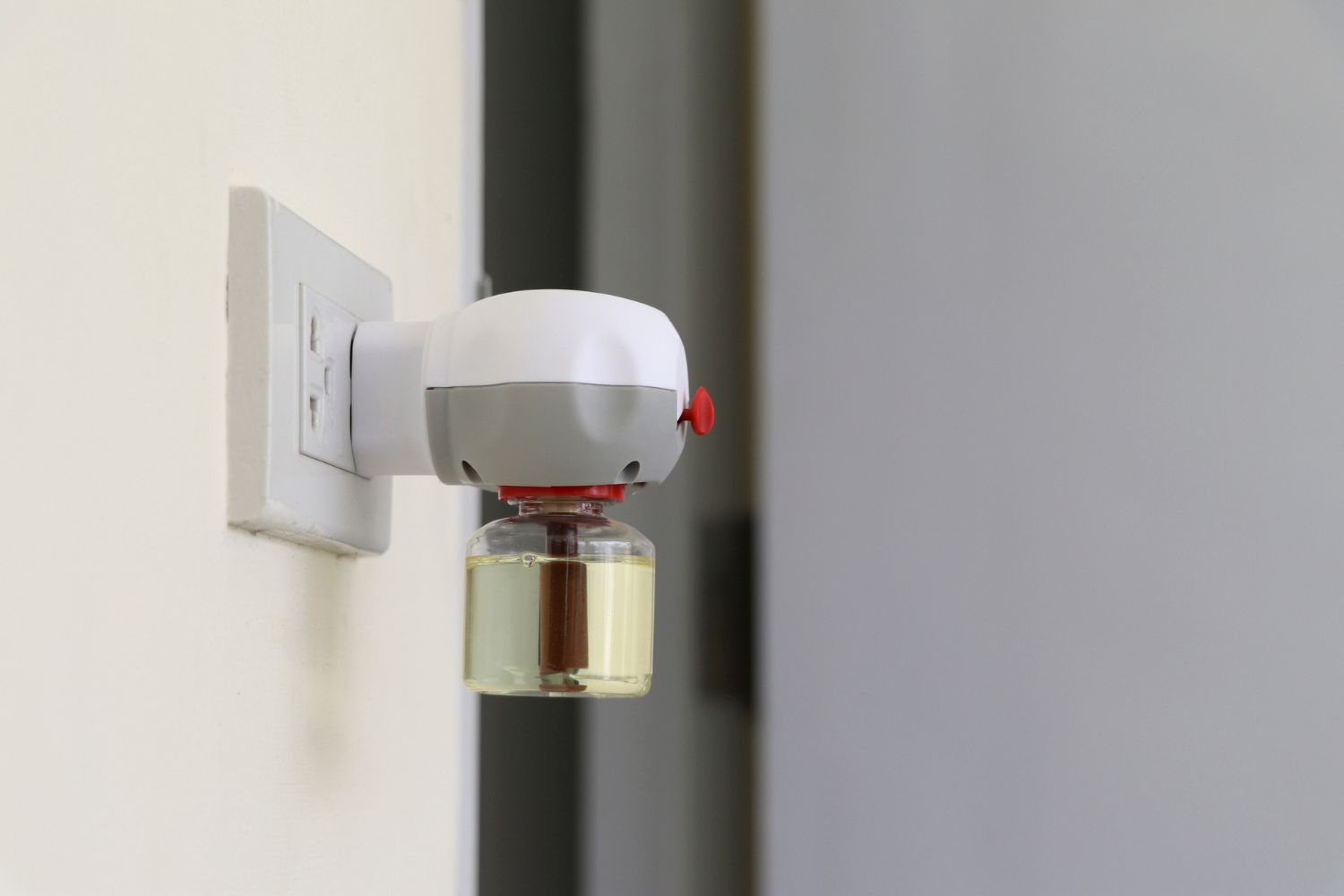
Mosquito Control: DIY vs. Hiring a Professional
There are several solutions for homemade mosquito repellent or DIY mosquito traps that can help prevent infestation in certain conditions—planting lemongrass is known to deter mosquitoes from lingering, and citronella and garlic oil are also known (and safe) deterrents. Homeowners can purchase sprays to apply to their lawns on their own, but most sprays available at retail outlets aren’t really strong enough to handle a large infestation. Traps, both homemade and store-bought, can help with occasional flybys. If the weather is favorable and there isn’t already a significant issue, these natural home remedies may be enough.
However, these treatments won’t help if there’s already a big problem or if there is pervasive heat and moisture. In those cases, it’s better to hire a professional. Licensed pros have access to more effective chemical treatments and have the training and protective gear to use those treatments safely. Plus, hiring a professional for mosquito control costs only a little more than a DIY homeowner will spend buying vats of less-effective sprays at a home improvement store. If a significant problem is suspected, homeowners will want to call a professional to do an evaluation and inspection. A professional is more likely to solve the problem and help the homeowner save some money in the long run, making the exterminator cost well worth it when it comes to eliminating mosquitoes.
How to Save Money on Mosquito Control Cost
Depending on how many treatments are necessary and what kind, mosquito control prices aren’t cheap. But if it’s necessary, it’s necessary. There are several ways to save a bit on mosquito control and make it more affordable.
- Act quickly. Call in a professional as soon as the problem presents itself; if it’s a significant infestation, don’t waste time and money on DIY steps—it will be cheaper and more effective to mow mosquitoes down quickly.
- Talk to neighbors. Some mosquito control companies will offer a reduced charge if a group of neighbors all hire the same mosquito extermination company to provide services.
- Look into contracts. If mosquitoes are a problem every year, consider a contract. While contracts may look expensive, if a homeowner is regularly hiring a company to provide three or four one-time treatments every year, a contract will likely provide a significant savings.
- Be proactive. Schedule a treatment just before you usually become aware of the first mosquitoes. Interrupting the life cycle before it really takes hold can mean fewer mosquitoes overall and fewer treatments over the course of the season.
- Eliminate standing water. One of the best ways to prevent pest infestation is yard maintenance. Keep the yard as free of pockets of standing water as possible to prevent mosquitoes from breeding, and keep brush neatly trimmed.
Questions to Ask About Mosquito Control
It’s important for a customer to seek evaluations and quotes from several companies before hiring a mosquito control service. Customers will want to compare their methods and costs so they can choose the combination that seems most effective and makes the most sense for their yard. This is most effective if the company comes to the yard to really assess the problem. As the company is conducting its inspection, the customer will want answers to the following questions.
- How long have you been in business in this area?
- What kinds of treatments do you offer?
- What kind do you recommend for my infestation? Why?
- Where and how often will you treat?
- Will you call ahead when you’re coming to treat the yard?
- Are your products pet- and child-safe? How long do we need to stay out of the yard after treatment?
- Are you and all of your technicians licensed and insured?
- What kind of payment plans do you offer?
- How long can I expect the treatment to last? Do you offer any kind of guarantee?
- When should I call you if I think there’s a re-infestation?
FAQs
Nobody wants mosquitoes chasing their guests and swarming their dinners, but the options to get rid of them can seem complicated—and decisions can be difficult when they involve chemical options. These are some of the most frequently asked questions about mosquito control cost and their answers to help customers start thinking about the best option for their home.
Q. What is the cheapest way to get rid of mosquitoes?
At a cost of $75 to $100, larvicide briquettes are the most efficient and least expensive way to reduce mosquitoes in the yard. Other forms of control kill the adult mosquitoes, but they will need to be reapplied as soon as the eggs left behind by that generation hatch—at which point the process begins again. Larvicide briquettes are placed in areas where water collects and kill the eggs and larvae that are in the water, stopping the cycle of mosquito rebirth.
Q. Will rain affect mosquito spray?
Most of the time, no. Mosquito sprays are oil-based, so they aren’t affected by water. In addition, the sprays aren’t designed to sit on leaves, grass, or foliage—they are aerosolized to linger for a short time in the air to affect mosquitoes as they fly. Once the spray lands, it dissipates, regardless of whether or not there is other moisture present. If it’s actively raining at the time the yard is to be sprayed, the application may be postponed until the rain has stopped so it won’t knock the spray out of the air too quickly for it to be effective.
Q. Should I go outside when there’s spraying for mosquitoes?
The concentration of pesticide necessary to kill mosquitoes is quite low. Generally, unless humans are exposed to frequent, sustained, concentrated amounts of spray, there’s no real danger of ill effects, especially if protective gear is worn during the actual application, when concentrations may be slightly higher. Aerial spraying (done by towns to reduce significant mosquito activity in an area) is done at night, and it will dissipate quickly while most people are inside. Some people, however, do have unusual sensitivity to chemicals, so if that’s the case, they’ll want to use extra precaution when spraying and stay indoors when aerial spraying is occurring.
Q. How long does a professional mosquito treatment last?
The length of a treatment’s staying power varies based on a couple of things, such as the type of treatment and where the mosquitoes in the yard are in their life cycle when treatment begins, but in general a treatment can be expected to last for about 30 days.
Q. What month should I spray for mosquitoes?
The best month to spray for mosquitoes in a yard is just before the weather starts to warm, so it will depend a little bit on where a customer lives. In general, though, the most common month to spray is March, when meteorological spring begins. March may be a little early in some areas, but it’s safely ahead of when mosquitoes become active in most areas. In warmer climates with high humidity, spraying for mosquitoes can be a year-round activity.
Q. Can mosquito spray be dangerous?
Any chemical can be dangerous when people or animals come in contact with it or touch it in high enough concentrations. The spray used in most preventive applications for mosquitoes is a synthetic version of a naturally occurring pesticide mixed in very low concentrations (less toxic than common chemicals such as nicotine, caffeine, and aspirin) combined with another chemical that reduces the mosquitoes’ resistance to the pesticide. It does not generally cause any problems when it comes in contact with skin, and it would have to be directly inhaled in large quantities to cause any respiratory reactions. Those who are extremely sensitive to chemicals will want to consider staying indoors when a mosquito professional spray is being deployed and wearing eye and skin protection when using spray.
Sources: Angi, HomeAdvisor, Fixr, Northwest Exterminating

